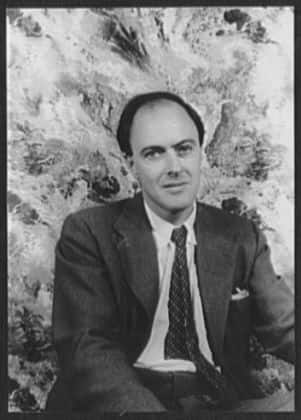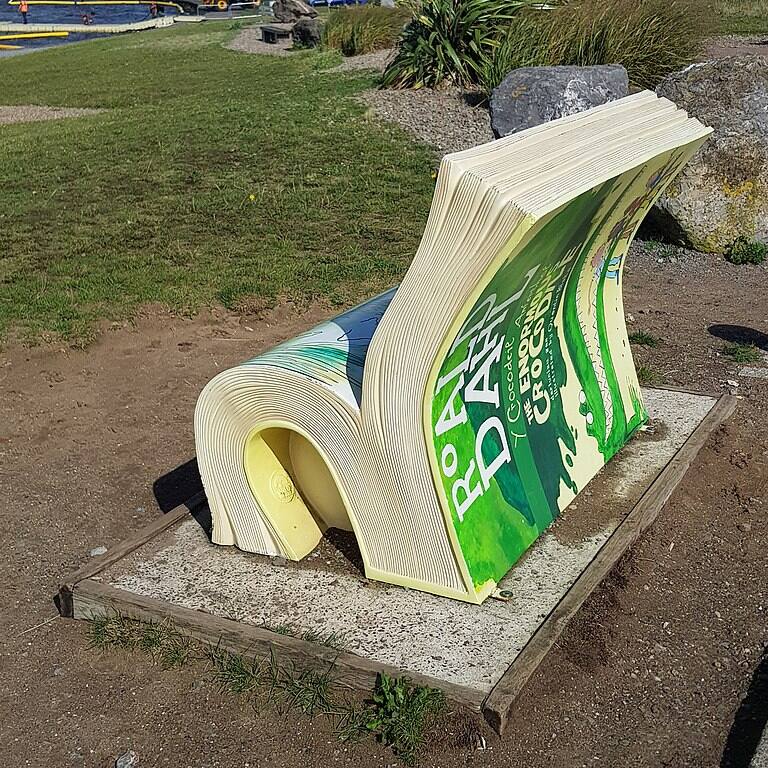



The stories of Roald Dahl, one of the greatest children’s books writers ever, have been rewritten for “sensitivity”, to protect readers from feeling insecure or frightened. This is the latest woke atrocity.
The changes made by Dahl’s publisher Puffin Books, a division of Penguin Random House, in consultation with the Roald Dahl Story Company, which owns the rights to the books, relate to weight, mental health, gender and race.
In Fantastic Mr Fox, the mention that two tractors are black has been deleted. “Bunce, the little pot-bellied dwarf”, is now plain old Bunce. Obviously, the people who did this would find Snow White and the Seven Dwarfs deeply problematic.
Some of the changes made are astonishing. In George’s Marvellous Medicine, the sentence “He didn’t have any brothers or sisters” has been changed to “He doesn’t have any siblings”. “Daddy says it’s fine for a man to be tall” has become “Daddy says it’s fine for people to be tall”. “Mummy washes them down the sink” is now “Mummy and Daddy wash them down the sink”. And inexplicably, “Owch!” has been changed to “Ugh!”
 Roald Dahl (Portrait by Carl Van Vechten)
Roald Dahl (Portrait by Carl Van Vechten)The word “fat” has been excised from all the texts. In the classic James and the Giant Peach, Aunt Sponge is no longer “enormously fat and very short”, but “quite large and very short”. She is not “fat and pulpy as a jellyfish”, but only “pulpy as a jellyfish”. Her “fat arms” are now just “arms”. The entire sentence “In another minute, this mammoth fruit was as round and large and fat as Aunt Sponge herself, and probably just as heavy” has been deleted.
Also read: What wine experts and book critics can learn from each other
Even the feelings of mice have been catered to. So “fat little brown mouse” has become “little brown mouse”.
This sort of censorship is mindless and potentially dangerous. If the word “fat” is unacceptable, the next step would be to ban the entire Five Find-Outers mystery series by Enid Blyton, because the leader of the gang of child detectives is nicknamed Fatty. In fact, vast swaths of children’s literature would have to be banned. As would award-winning literary works like John Kennedy Toole’s A Confederacy of Dunces, featuring the overweight and lazy Ignatius Jacques Reilly, one of the greatest characters ever created in fiction. What about the comedies of Laurel and Hardy? Should Jumbo the elephant be banned?
Should the word “skinny” also be cancelled? Should Sherlock Holmes’ cocaine habit be censored out? Should there be a footnote on every page of Tintin comics which has Captain Haddock drunk explaining that the publishers do not support drinking alcohol and it’s not nice to laugh at alcoholics? And also add a disclaimer that they do not support Haddock’s “racist” use of the word “bashi-bazouk” as an abuse—bashi-bazouks were Ottoman (Turkish) soldiers. And of course, Asterix drinking the magic potion before beating up the Romans is the same as athletes taking performance-enhancing drugs—an absolutely illegal act.
What about “hunchback”? Is Hunchback of Notre Dame a terrible ostracization of the physically deformed? Should Victor Hugo’s novel be retitled “The Man With A Back At A Sharp Forward Angle At A Christian-Denominated Place Of Worship”? Alice in Wonderland is replete with references to death—“Off with her head!” the Queen of Hearts keeps shouting; after discussing cabbages and kings and whether pigs have wings, the walrus and the carpenter eat up all the gullible oysters they have lured on to the beach.
Dahl’s books have sold more than 300 million copies and have been translated into 68 languages. One of the key reasons why so many generations have loved his stories is that they are different from run-of-the-mill children’s stories. Many of them are darkly funny and resonate powerfully with the feelings of injustice, rebellion and fear that all children have felt at one time or the other—and also hope.
In The Witches, whose Grand High Witch has been celebrated with a postage stamp by the British Royal Mail, a group of evil sorceresses trap children with free chocolates that turn them into mice so that they will be killed by their own unsuspecting parents. In Matilda, which topped the list of 200 best novels of all time in a 2003 BBC survey, the six-year-old heroine rejects her awful parents and goes to live with her kindly teacher Miss Honey.
Themes like these are unusual and may make some adults uncomfortable, but that is precisely the reason why the books have struck a chord with millions of children and given them joy.
 (Photo by Irid Escent via Wikimedia Commons)
(Photo by Irid Escent via Wikimedia Commons)This edit of Dahl is the latest in the rapidly growing series of woke censorship. A couple of years ago, a few school districts in the United States banned profoundly anti-racist books like Mark Twain’s The Adventures of Huckleberry Finn and Harper Lee’s To Kill A Mockingbird because they are…racist! J.K. Rowling has of course not only been cancelled by LGBTQ+ activists after being accused of being racist, transphobic, anti-Semitic and so on, but also received rape and death threats.
Also read: Maurice Sendak made books the safe place where children could encounter dangers
Last month, the University of Groningen in the Netherlands cancelled a show of Samuel Beckett’s play Waiting for Godot because the director had auditioned only men for the all-male cast of characters. If he were alive today, Beckett, whose Godot is about the irrationality of existence, would probably have been amused.
What exactly are Dahl’s censors hoping to achieve? They say that they are removing language that is offensive or makes child readers feel less safe. Even if one assumes—though I personally believe otherwise—that some children may be offended by some words or passages in the books, how exactly are we helping these kids by shielding them from the harsh world?
Should all ghost stories be banned because children may get scared? If we go by this logic, most fairy tales from all cultures should be banned, since violence and death are staple themes there. And the Mahabharata and the Iliad and Shakespeare.
By deleting words like “fat” and replacing “brothers and sisters” with “siblings”, we are in fact contributing to infantilising our children. If we want to keep them really safe, we should not even be allowing them to go out and play or ride a bicycle, because they could fall and hurt themselves. Whereas actually there is no end to how much we can hurt our children when we start down that path.
Discover the latest Business News, Sensex, and Nifty updates. Obtain Personal Finance insights, tax queries, and expert opinions on Moneycontrol or download the Moneycontrol App to stay updated!
Find the best of Al News in one place, specially curated for you every weekend.
Stay on top of the latest tech trends and biggest startup news.